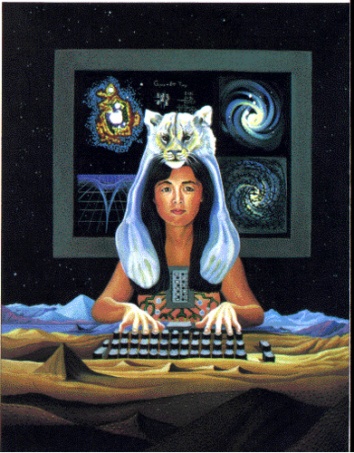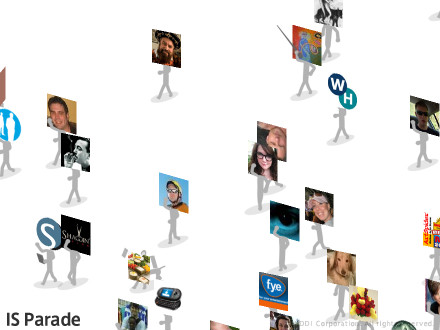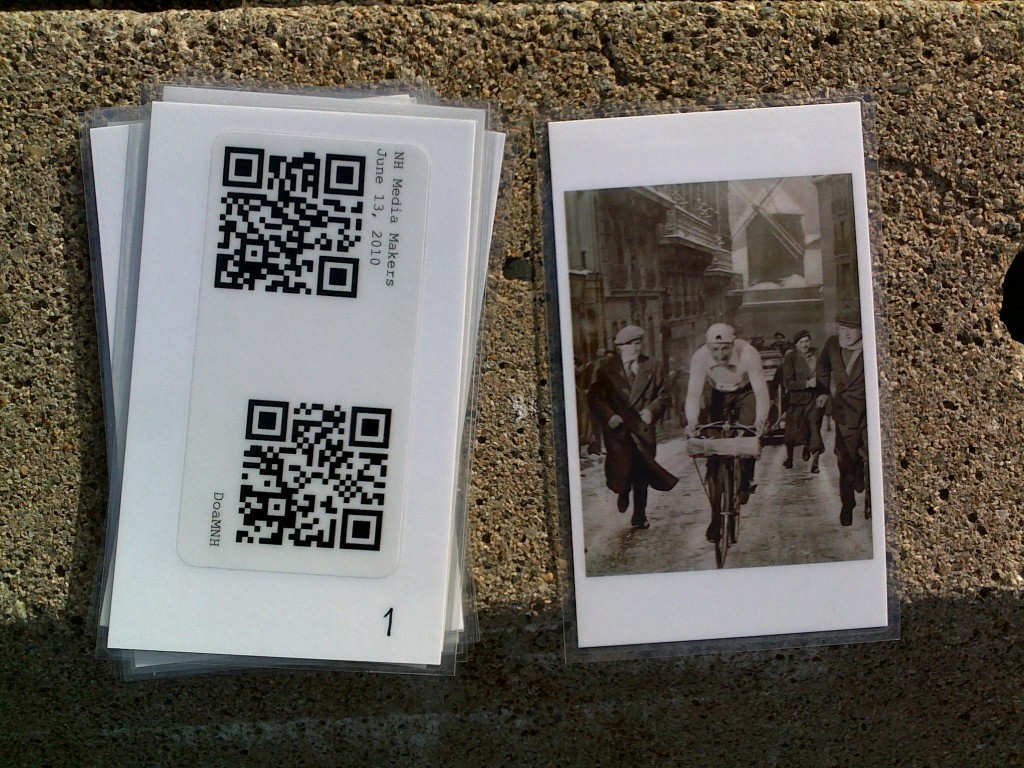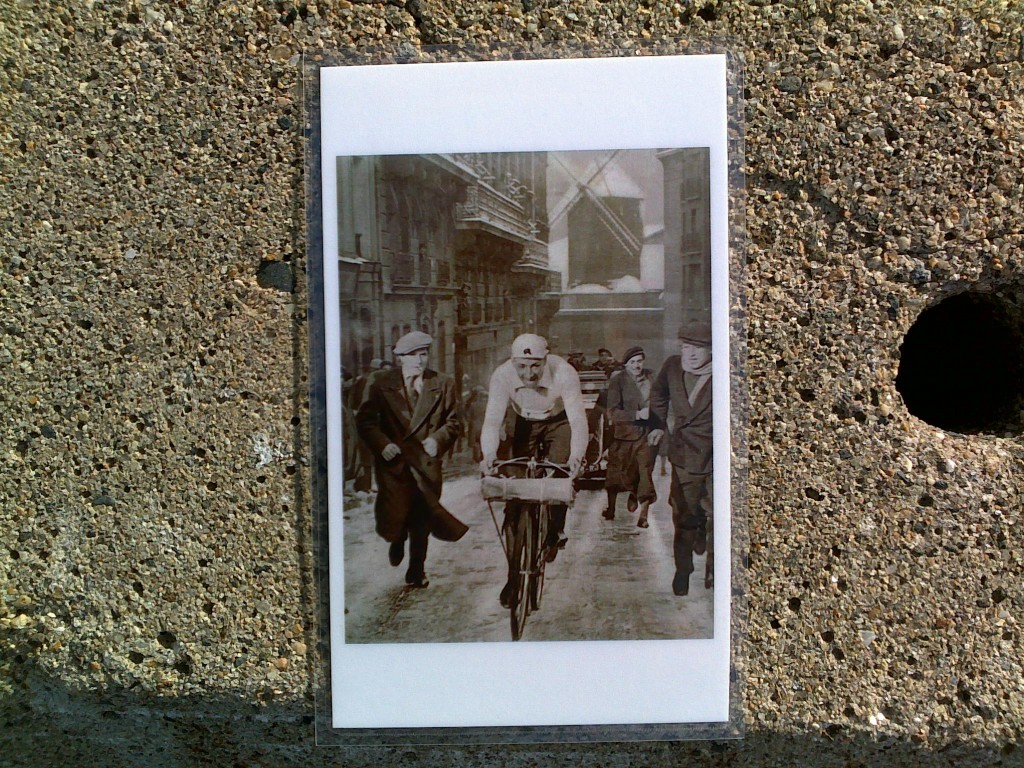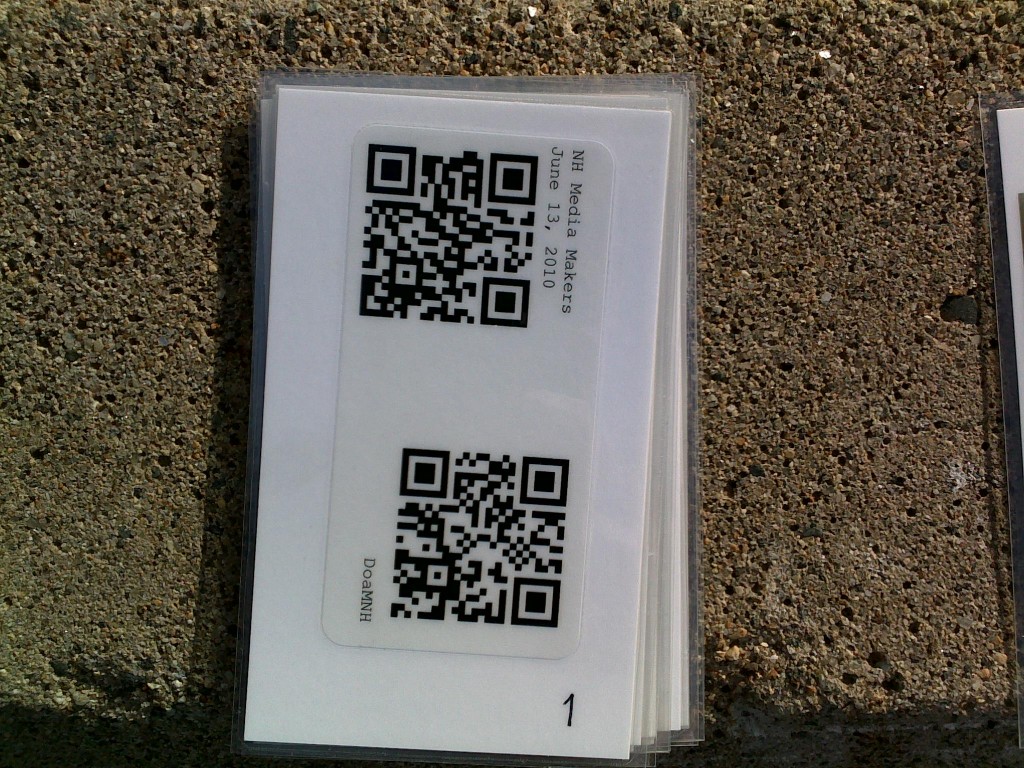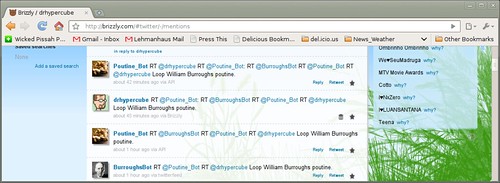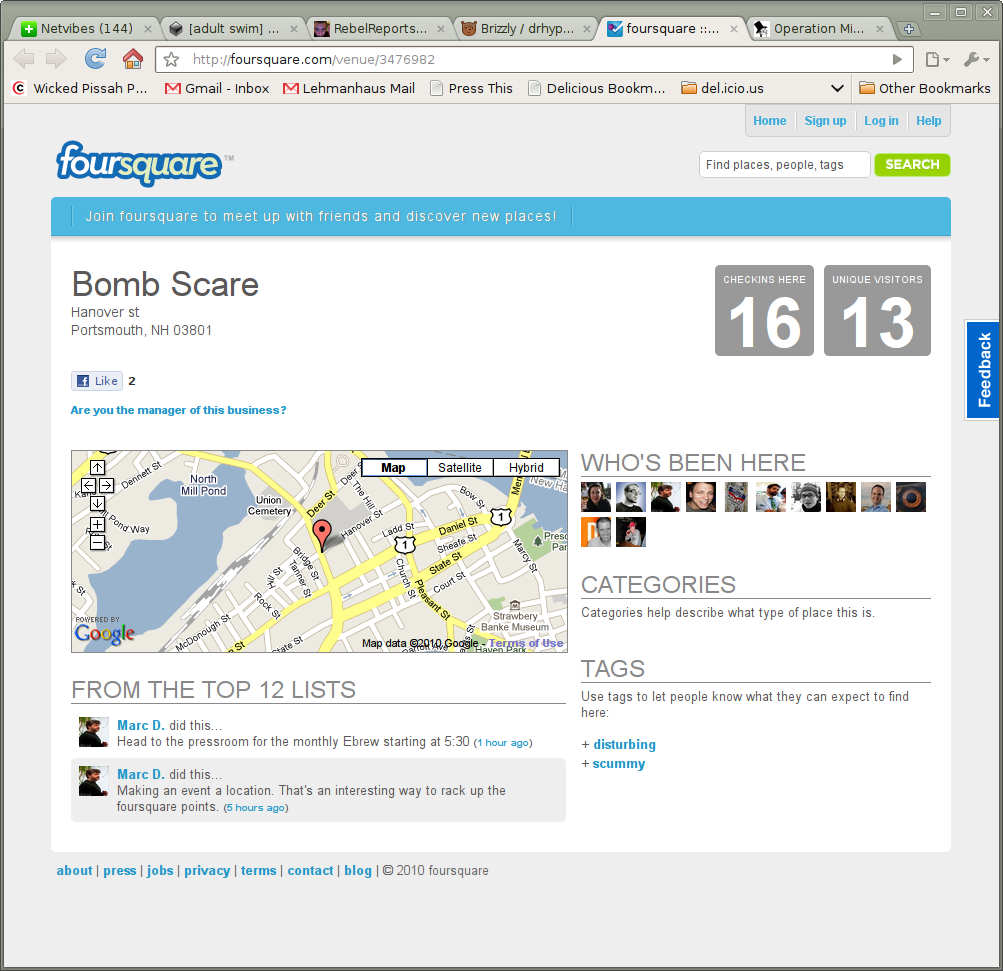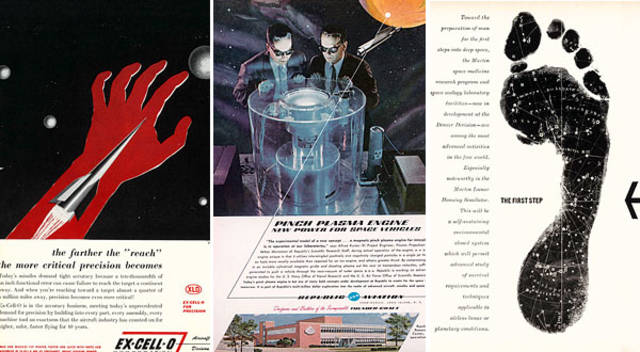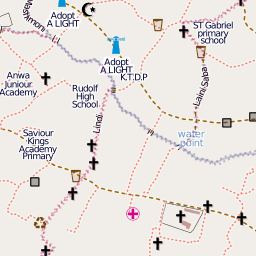I may have a chance to consult/volunteer/help out with a project that combines elements of social media, augmented reality, bar coding, street art, locational stuff and probably a couple other things. So… I figured I’d better take the plunge and get a Foursquare account set up. Foursquare is an app that let’s you check in from various venues (including bomb scare sites >grin<) – the idea is that if you’re out for a night on the town, friends can track you down easily. Once they’ve done that, the mini-mob shows up as being together and additional friends might be motivated to jump in. At least as important as the ‘find me’ aspect (based on what I’ve seen of real world use) is, first, the game aspect of foursquare and, second, tweeting “I’m here” as part of your general tweetstream. Foursquare hands out badges (not real ones – for real Foursquare badges, Nerd Merit Badges has your back) – there’s a certain amount of competitive jockeying for Mayorships and the badges deliver some positive feedback for Foursquare use.
Foursquare is at its best when combined with a location-aware phone – you can check in with any phone that has either a data plan or text capabilities, but it’s a bit cumbersome. My phone (Nokia E71x) has a GPS, but there’s no native Foursquare app for the Symbian operating system. A quick google turned up Waze, which describes itself as “a social mobile application providing free turn-by-turn navigation based on the live conditions of the road.” Waze is a crowdsourced route and driving conditions system – fire up Waze on your phone, drive around and the Waze client uploads info about where you are, how fast you’re moving etc. It can then ‘see’ slowdowns, traffic jams etc. It also allows you to explicitly report accidents, speedcams, etc. and -important for my original purpose- you can use it to check in on Foursquare. Original purpose aside, it is a really cool idea – instead of some central authority issuing traffic advisories, the traffic itself does the monitoring.
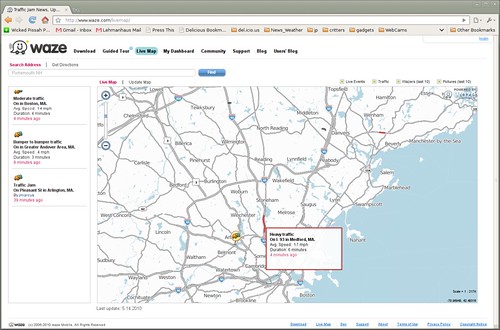
A few thoughts/links:
- “One relatively recent and very simple intervention, made possible by the lamination together of three or four different kinds of technology, has completely changed what a map is, what it means, what we can do with it.
It’s this: that for the very first time in human history, our maps tell us where we are on them.
The fact that such depictions can now also render layers of dynamic, real-time situational information seems almost incidental to me compared to this. This one development subtly but decisively removes the locative artifacts we use from the order of abstraction. By finding ourselves situated on the plane of a given map, we’re being presented with the implication that this document is less a diagram and more a direct representation of reality — and, what’s more, one with a certain degree of fidelity, one that can be verified empirically by the simple act of walking around. How is that not epochal?” *
- More AG on video game rewards meet social media: “Schell’s argument (or one of them, anyway) is that the everyday environment is now sufficiently instrumented and internetworked that the psychological triggers and incentives developed by game designers to motivate in-game behavior can be deployed in real life. […] And this is more than passing scary, because these motivators work. Just as food designers have figured out how to short-circuit our wetware with precisely calibrated doses of fat, salt and sugar, game developers trip the dopamine trigger with internally-consistent, but generally otherwise worthless, symbolic reward systems. That they’ve (knowingly or otherwise) learned how to play this primordial pathway like a piano is attested to by the untold gigahours gamers worldwide spend voluntarily looping out the most arbitrary actions, when most of them presumably have a choice of other pretty swell things they could be doing.” *
- And, of course, the whole privacy-control thing (I’m linking those 2 concepts because I agree with others that the crux of the biscuit is control – my control over my info stream is the key). I don’t mind that twitter sees that I’m out having brunch (presumably the dogs, the array of automated claymores (“Front Toward Enemy”!) and the genetically engineered sentient whip-hawthorns will cause burglars to leave the house be), but I’d mind very much if state troopers had real-time location and speed data on me as I drove around.
An aside on privacy: Facebook has been -justifiably, in my opinion- getting pummeled for its approach to privacy. Partially in reaction, the Diaspora project has been getting a lot of attention – like receiving $174,339 towards a goal of $10,000 on kickstarter (you read that right). Enthusiasm for a Facebook replacement is high, but here’s a post arguing that Diaspora may be cursed by early success.


